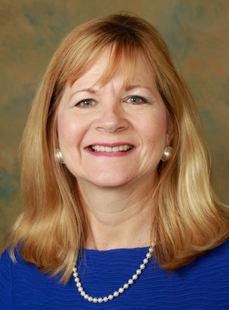Reaching out to mother, child
Reaching out to mother, child
By Mary Dale Peterson
Each year, nearly 9,500 moms-to-be in South Texas attend Driscoll Health System-sponsored Cadena de Madres (Network of Mothers) community baby showers. The free showers are open to any pregnant woman. We provide essential health information on how to prevent premature births, which can lead to infant deaths or long-term, costly care, in a fun, supportive environment.
Since 2009, Cadena de Madres and other innovative Medicaid programs in South Texas have helped Driscoll Health System reduce the premature birthrate by a remarkable 29 percent. The Texas premature birthrate is 10.4 percent (2013 data). In Nueces County, the premature birthrate — including for mothers with private health insurance — is 13 percent. In contrast, the premature birthrate for higher-risk Medicaid women enrolled in the Driscoll Health System is 10.2 percent. Our goal is to bring that rate down to 6 percent, far below the current national rate of 9.6 percent.
Nearly 10 years ago, 1 in 5 local babies required treatment in a neonatal intensive care unit. To change that, medical leaders from Driscoll Health System went into the community to meet with obstetricians and pregnant women, spreading the word about the importance of regular prenatal medical exams and full-term pregnancy (at least 39 weeks) for the health of the baby as well as the mother. A baby’s brain, lungs, and other important organs are not completely developed until 39 weeks. The American College of Obstetricians and Gynecologists and the American Academy of Pediatrics recommend that C-sections and induced labor be performed only when medically necessary — never for convenience.
In addition, Driscoll Health System offers nutritional counseling for pregnant women; resources to help pregnant women stop using tobacco, alcohol, and illicit drugs; and health counseling for pregnant women who have chronic health conditions such as diabetes, high blood pressure, and obesity that can cause miscarriage, early birth, or other serious complications.
Driscoll Health System has maternal-fetal medicine specialists that provide care to low-income women enrolled in Medicaid. We hired five of these specialized physicians who travel throughout South Texas, often treating 30 to 40 pregnant women a day. They concentrate on high-risk pregnancies to control early labor, prevent miscarriages, and manage other health problems. The five circuit-riding doctors collaborate with obstetricians, pediatric cardiologists, geneticists, nurses, and ultrasound professionals, among others.
The community baby showers sponsored by Driscoll Health System complement the efforts of medical teams. The mother-to-mother peer network created at these prenatal education events is a powerful force for behavioral change. Pregnant women listen and learn from other pregnant women who understand the importance of healthy habits. At one recent shower, a young pregnant woman said she saw no danger in drinking. “My mother drank alcohol when she was pregnant with me, so I don’t know why that would cause any problems,” she said. The other expectant moms disagreed. A health care educator explained that alcohol can pass from a pregnant mother to her baby and cause brain damage as well as other permanent disabilities and developmental problems.
The health of mothers and babies is a priority for Driscoll Health System. We focus not only on medical needs, but also on social, educational, and support network needs. We also partner with Texas A&M Health Science Center’s Coastal Bend Health Education Center in Corpus Christi to help pregnant women manage their diabetes.
Women with stable support systems have healthier pregnancies and healthier babies, making our communities stronger and more economically sound. Our Medicaid-supported programs have a significant and positive impact on the health of South Texans. We are proud of that achievement. Healthy babies mean a healthy future for us all.
We continue to work with beneficial Medicaid programs and educational opportunities to improve the health of mothers and babies. We’ve learned that even a baby shower can help provide the best baby gift of all: good health.




Comments are closed.